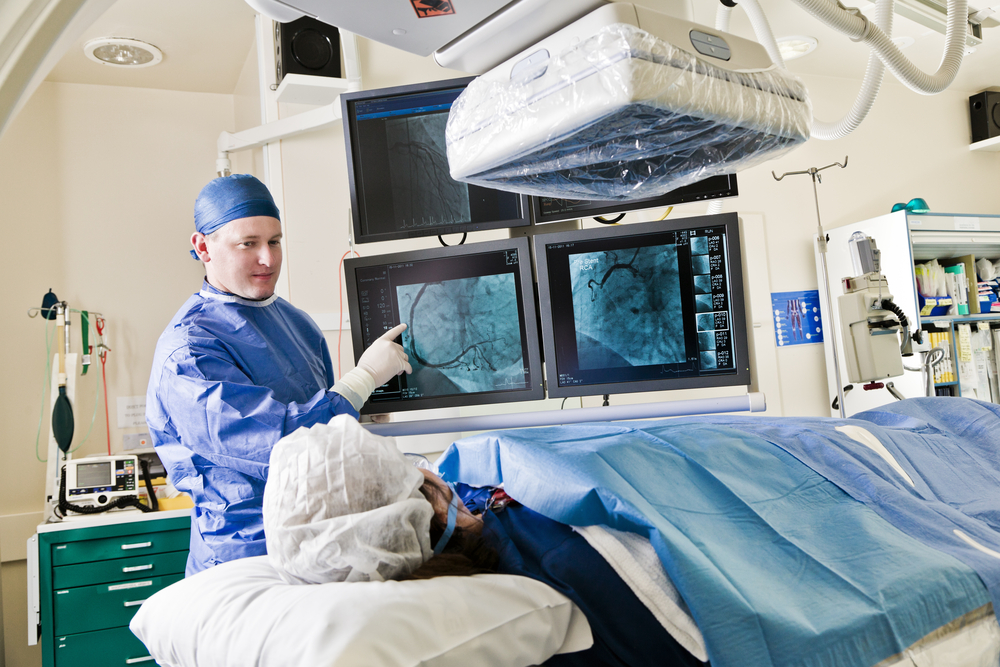Mark Kopec Now
Cardiac Cath Lab
The Baltimore Cardiac Cath Lab Lawyer
The cardiac catheterization laboratory, often referred to as the “cath lab,” is a special facility within a hospital or medical center dedicated specifically to the diagnosis and treatment of heart conditions. This resource has advanced the field of cardiology, providing physicians with insights into the heart’s structure and function. However, medical malpractice can occur. If you have an injury, you may need the Baltimore cardiac cath lab lawyer at the Kopec Law Firm.
History and Development
The history of cardiac catheterization dates back to the early 20th century. In 1929, Werner Forssmann, a German physician, catheterized his own vein and advanced the catheter into his heart, an achievement that laid the foundation for modern cardiac catheterization.
Technological advances have driven the development of cardiac catheterization, including making catheters smaller and the development of imaging techniques such as fluoroscopy and angiography. Consequently, these innovations have made the procedure more effective, allowing for a wider range of diagnostic and therapeutic interventions.
Patients and Conditions
Cardiac catheterization laboratories serve a diverse patient population, typically referred by cardiologists or other doctors. Patients may be referred for a variety of reasons, including:
- Chest pain: To evaluate the coronary arteries for blockages or narrowing.
- Heart failure: To assess the heart’s pumping function and identify underlying causes.
- Valvular heart disease: To diagnose and evaluate the severity of valve abnormalities.
- Arrhythmias: To identify the source of abnormal heart rhythms.
- Congenital heart defects: To diagnose and assess the severity of birth defects affecting the heart.

The Cath Lab Team
A cardiac catheterization laboratory is staffed by a team of healthcare providers, including:
- Interventional cardiologist: The physician who performs the procedures.
- Cardiovascular technologist: Assists the cardiologist during the procedure, operating imaging equipment and monitoring the patient’s vital signs.
- Registered nurse: Provides patient care before, during, and after the procedure.
- Anesthesiologist or nurse anesthetist: Administers anesthesia or sedation to the patient.
The Baltimore cardiac cath lab lawyer can evaluate the conduct of the medical providers that attended to you.
Procedures and Techniques
Cardiac catheterization involves inserting a thin, flexible tube called a catheter into a blood vessel, typically in the groin or arm. The catheter is then guided through the blood vessels to the heart, where it can be used to:
- Angiography: Inject dye into the coronary arteries to visualize them on X-Ray. This helps identify blockages or narrowing.
- Intravascular ultrasound (IVUS): Use sound waves to create detailed images of the inside of blood vessels.
- Pressure measurements: Measure blood pressure within the heart chambers and blood vessels.
- Tissue sampling: Obtain small tissue samples for biopsy.
The Baltimore cardiac cath lab lawyer can assess the specific procedure that you had.
Therapeutic Interventions
In addition to diagnosis, cardiac catheterization laboratories can perform a variety of therapeutic procedures, including:
- Percutaneous coronary intervention (PCI): A minimally invasive procedure to open blocked or narrowed coronary arteries.
- Balloon angioplasty: Inflating a balloon to widen a narrowed artery.
- Stent placement: Inserting a small mesh tube to keep the artery open.
- Atherectomy: Removing plaque from the artery wall.
- Valvular interventions: Repairing or replacing heart valves.
Limitations of Cardiac Catheterization
Cardiac catheterization is a diagnostic tool, but it has certain limitations. It cannot directly assess the electrical activity of the heart, which is better evaluated with electrocardiograms (ECGs) or electrophysiology studies. Additionally, cardiac catheterization may not be able to detect all forms of heart disease, such as certain types of heart muscle disease or inflammation.
Medical Malpractice with the Baltimore Cardiac Cath Lab Lawyer
Cardiac catheterization is a complex procedure with potential risks, including bleeding, infection, and heart attack. Medical malpractice claims related to cardiac catheterization can arise from a variety of factors, such as:
- Misdiagnosis of a heart condition: If a cardiologist fails to recognize a significant heart problem during catheterization, it can lead to delayed or inadequate treatment.
- Surgical errors: Mistakes during the procedure, such as puncturing a blood vessel or causing damage to heart tissue, can cause serious complications.
- Failure to obtain informed consent: Patients must be fully informed of the risks and benefits of the procedure before giving consent.
- Delay in treatment: If a delay in treatment after catheterization leads to harm, it could be grounds for a malpractice claim.
Next Step: Call the Baltimore Cardiac Cath Lab Lawyer
Medical providers in cardiac catheterization laboratories must adhere to standards of care, maintain accurate medical records, and communicate effectively with patients.
If you have questions about a cardiac cath lab, then visit our free consultation page or video. Then contact the Kopec Law Firm at 800-604-0704 to speak directly with Attorney Mark Kopec. He is a top-rated Baltimore medical malpractice lawyer. The Kopec Law Firm is in Baltimore and pursues cases throughout Maryland and Washington, D.C.





